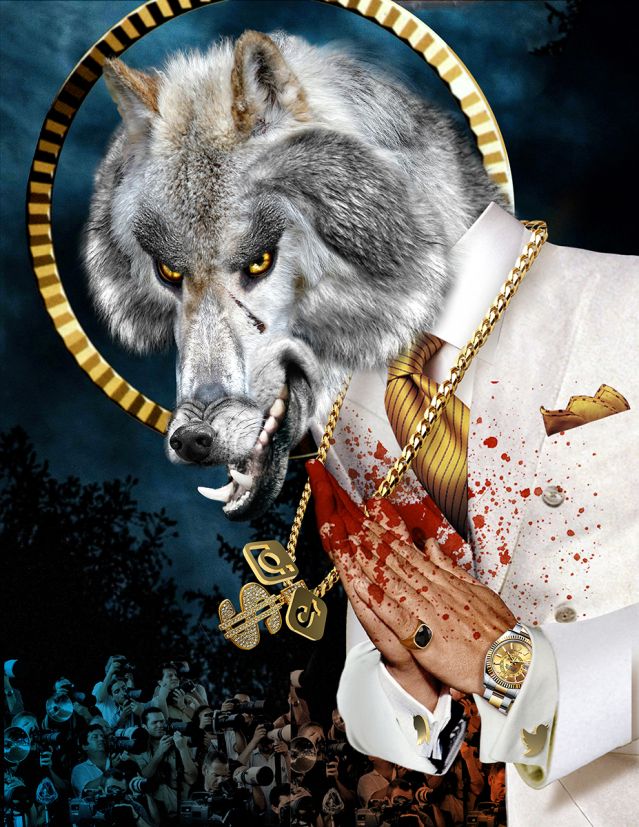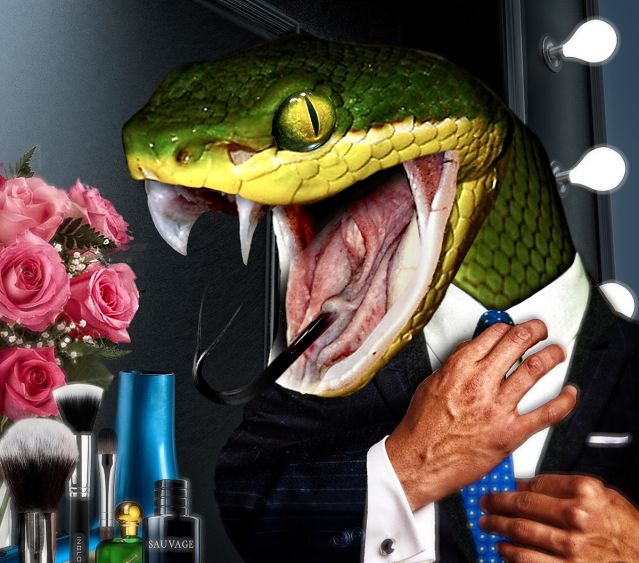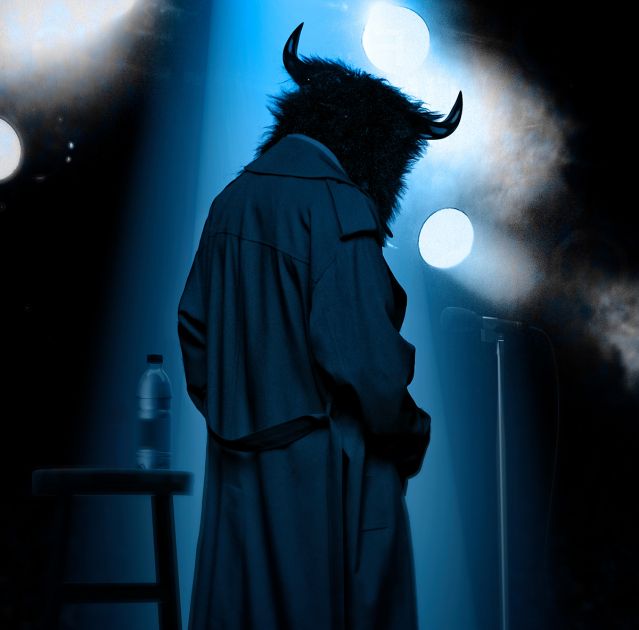When Dark Personalities Demand Attention
What attracts those with troubling personality traits—or worse—to showcase their vices on a public stage?
By Jennifer Latson published September 7, 2021 - last reviewed on September 17, 2021

YouTube celebrities Jake and Logan Paul have a long history of deplorable behavior. Racist language, allegations of sexual assault, and scamming money from young followers by promising to teach life skills via a series of videos that never materialized have earned the brothers their reputation as the “big bad wolves” of social media. Some of their transgressions have led to legal trouble or lost contracts, but even their worst offenses have failed to make a dent in their millions of online followers.
In 2017, Logan traveled to Japan’s so-called Suicide Forest, a remote spot on the flank of Mount Fuji that has become a draw for people looking to end their lives. Logan and his friends came upon the body of a victim and posted a video of their encounter, including footage showing them joking about suicide. Jake, meanwhile, was charged with criminal trespassing last summer when he and his entourage filmed looters at an Arizona mall during the protests that followed George Floyd’s murder. Jake denied participating in any vandalism himself.
The Pauls’ online notoriety hasn’t stopped them from making money, however. If anything, it helped fuel their rise in the world of boxing, their latest venture. Jake took on former MMA fighter Ben Askren, and Logan, boxer Floyd Mayweather Jr.
The brothers are in good company among bad actors on social media. YouTube celebrity PewDiePie has uploaded videos with Nazi imagery and anti-Semitic humor; Jason Ethier faked his girlfriend’s death to gain views; Sam Pepper staged a kidnapping and murder to “prank” a friend and film his reaction. Tana Mongeau organized a 2018 YouTube convention that evoked comparisons to the Fyre Festival. She charged $65 for “VIP” tickets, but when 20,000 people showed up at a venue that could hold only 5,000, the convention was quickly shut down.
Gaining fame by behaving badly isn’t new, of course. It’s been with us since at least the early days of reality TV, with saboteur Omarosa on The Apprentice and manipulative Scott Disick on Keeping Up With the Kardashians. Whether on YouTube, TikTok, Instagram, or old-fashioned TV, there’s no shortage of people willing to play the villain. Assuming that these platforms represent the true character of the influencers who use them, it raises a question that puzzles many of us: Why would someone with troubling traits volunteer to broadcast those traits so loudly?
Experts say there are a number of reasons people would prioritize unflattering publicity over a pristine public image. Some of them are living their own reality dramas: They may see the internet as a stage and have a tendency to hog the spotlight whether or not there are iPhone cameras rolling. People with so-called Dark Triad personality traits, meanwhile, may focus less on the risk of exposing their narcissism, psychopathy, or Machiavellianism than on satisfying a craving for attention and admiration. While not everyone who comes across as a jerk on YouTube has a personality disorder, a number of people who are high in psychopathic traits have made notable public appearances, sometimes with damaging real-world consequences.

Hot-Headed Trailblazers
The idea that playing the villain makes you look cool is part of what drives people to expose their darker natures on social media. Online and off, many people view Dark Triad traits, including narcissism and aggression, as a kind of rogue heroism; they celebrate people who take what they want and say what they think, regardless of how it may affect others. “Dark personality traits can be advantageous in many situations and are often rewarded by the culture we live in,” says Otterbein University psychologist Noam Shpancer.
In fact, people with antisocial traits may not view them as problematic or worthy of concealing. “People who possess these traits often see whatever problems they encounter as other people’s fault,” Shpancer says. The internet’s big bad wolves may not think of themselves as jerks, but as winners or truth-tellers. “They may see those who criticize them as aggressive or jealous and believe the nice people around them are naive, weak, or fake.”
Shpancer also suspects that the negative consequences of looking like a jerk online are minimal in real life. “The benefits of fame in terms of halo effect (he’s famous so he must be good, important, smart, and so on) and status gains may outweigh the effects of the negative image. The allure of fame and money is overpowering in large part because of the pull of celebrity, which transforms you from ‘nobody’ to ‘somebody’ quickly, without requiring you to actually do or achieve or know anything unique or special. Just be yourself. It’s the ultimate validation fantasy, fulfilled.”
YouTube and TikTok personalities have learned a lot about the benefits of bad publicity from the antics of their forebears on reality TV, which still churns out highly profitable properties. Take one of the earliest reality stars, David Rainey, known by the nickname Puck on MTV’s Real World series, who astonished viewers with his dirty dealings decades ago—though his shenanigans seem almost tame compared with today’s social media stunts.
Abusive to his castmates, especially Pedro Zamora, a young gay man who later died of AIDS-related health problems, Puck appeared as a homophobic hothead whose treatment of others ranged from disrespectful to downright cruel. The rest of the Real World cast voted to evict him from the show’s communal house, but he continued to seek the spotlight, competing in 2003 on a Real World spin-off, Battle of the Sexes, on which he married his wife in a televised ceremony. Puck left the spin-off mid-season, once again after trashing the communal house and slashing the walls with a machete.
In real life, he has been in frequent legal trouble, with multiple arrests for domestic violence and a conviction for stalking a woman in 2012. He doesn’t regret his public appearances, however, nor does he regret antagonizing others. He once told MTV News: “It was cool, and I think God did that, for me to move into TV and fire me all the way up. It was like ‘Bam!’…It was good for me, and not so good for them.”
Cold-Blooded Celebrity Seekers
“You would like me if you met me,” M.E. Thomas asserted in her autobiography, Confessions of a Sociopath: A Life Spent Hiding in Plain Sight. “I have the kind of smile that is common among television show characters and rare in real life, perfect in its sparkly teeth dimensions and ability to express pleasant invitation.”
“M.E. Thomas” is a pseudonym, naturally. “I may have a disorder, but I am not crazy,” she wrote. Based on her lack of empathy for others, her grandiosity, and her impulsive, aggressive behavior, she earned a high score on a version of the psychopathy checklist originally developed by the psychologist Robert Hare. Thomas describes herself as a sociopath rather than as a psychopath, however, because she feels the prefix psycho carries too much social stigma.
She was aware that revealing her dark side publicly could have damaging consequences, so she initially took steps to protect her identity, even as she revealed a number of personal details in her book—and in an excerpt published in Psychology Today in 2013.
Then she went on Dr. Phil. Wearing a blonde wig as a disguise, but taking no pains to conceal her facial features or her voice, she admitted to manipulating people and fantasizing about hurting or killing them, though she said she’d never actually committed a crime. Her true identity eventually came out, and she lost her job as a law professor. She continues to make appearances on her YouTube channel, however, where she interviews other self-described psychopaths and sociopaths—with their images blurred. And she maintains a popular website, Sociopath World, where she addresses such questions as “Can sociopaths be good?” and “Why emotions?”
David James, a former model and British football star, also scores high on the psychopathy checklist. He discussed it openly—without disguising his identity—on a British documentary called Psychopath Night. He argued that his psychopathic traits helped him achieve peak athletic performance, since they enabled him to detach emotionally from game outcome. But, he added, they didn’t endear him to his teammates. “I can’t do the empathy thing,” he said.
Why would high-achieving people risk their careers to publicly proclaim their psychopathic traits? Ego, for one, says John Edens, a forensic psychologist at Texas A&M University. Extreme egocentrism and grandiosity are hallmarks of a psychopathic personality. So, too, is an inability to foresee the long-term consequences of your actions, even when those are potentially ruinous to your reputation and livelihood. For a highly psychopathic person, online
exposure would be a way to affirm one’s own sense of celebrity status, he says, and any future harm would be an afterthought—if it was a thought at all.
“Because they are relatively fearless and immune to stress, it makes sense that they might take unnecessary risks that leave the rest of us scratching our heads,” Edens says. Even when harsh consequences inevitably ensue, people high in psychopathic traits might not see the cause-and-effect relationship between their actions and the outcome. They also might not care.
“If I got fired from my job, I would be desperate and scrambling, but one of the fascinating things about people we label as psychopathic is that they don’t have the same reaction to, ‘Hey, my world just blew up,’” Edens says. “They might react by saying, ‘Oh well, I’ll probably land on my feet.’”

Charismatic Killers In the Limelight
No one equates controversial social media stars with cold-blooded killers. But if psychopathic traits may be present in both (with killers at the extreme end of the spectrum), then you might expect to see attention-getting behavior in murderers as well. And there are a number of infamous instances in which serial killers have sought publicity. While some have courted media attention anonymously—the Son of Sam, the Zodiac Killer, and BTK are notorious examples—others have taken a more visible spot in the limelight.
In 1989, farmworker John Cooper appeared on a popular British game show, Bullseye, where he competed for prizes by throwing darts and answering trivia questions. In the banter between games, he gushed about his love for the Welsh coastal county of Pembrokeshire. It would have been innocuous small talk if he hadn’t already murdered two people in this remote stretch of countryside—and then gone on to kill two more in the same place a few weeks later.
The intimate familiarity with Pembrokeshire that Cooper demonstrated on Bullseye caught the attention of detectives who later watched the show and ultimately helped lead to his arrest in 2009. (A miniseries dramatizing the investigation aired on British TV recently, but Cooper, now serving a life sentence in prison, did not make an appearance.)
For someone like Cooper—or the serial killer Rodney Alcala, who went on The Dating Game in the late ’70s, in the midst of his killing spree—the drive for exposure is different than for a publicly self-proclaimed psychopath, says Katherine Ramsland, a professor of forensic psychology and criminal justice at DeSales University. Someone so high in psychopathic traits that he’s capable of murder isn’t going to draw attention to those traits: For him, the appeal of the spotlight is the opportunity to trick an audience into thinking he’s an ordinary, likable guy. It’s a way to demonstrate how talented he is at deception—a kind of inside joke with himself when people fall for his act. The fact that the stakes are so high if he fails is part of the thrill.
“The theory is that some of what they’re doing is trying to get stimulation, since they’re so easily bored. They seem low-key and unemotional, and part of it is that they’re physiologically not reactive. They’re looking for challenges,” says Ramsland. “They might think, I want to go on this game show and win some money, and they’ll never make the connection. These people love the sense that no one can tell.”
Jack Unterweger, an Austrian serial killer active in the 1970s and 80s, worked as a journalist, reporting for local media on the very crimes he was later convicted of committing. When dispatched by his employers to Los Angeles to cover the LAPD, he murdered three California women. Ted Bundy, meanwhile, who was executed in 1989 after confessing to the murders of 30 young women, represented himself during the televised trial for two of the murders, playing to the camera and becoming something of a media darling. Bundy succeeded in wooing many viewers—including a number of women admirers who later wrote to him in prison—even as he sabotaged his own criminal defense.
The drive for stimulation is so strong for highly psychopathic people, in fact, that it can override their ability to act in their own self-interest. A 1997 study by clinical psychologist Peter Arnett supported this theory with a gambling experiment involving loaded decks; participants won money if they flipped a face card and lost money if they didn’t. The odds of flipping face cards worsened as time went on, and nonpsychopathic players soon figured that out and quit while ahead. The highly psychopathic players, however, kept going against the odds—until they’d lost everything.
“Individuals high in psychopathic traits often get into all sorts of trouble that most of us would think they would avoid,” says University of New Mexico neuroscientist Kent Kiehl. “I have interviewed dozens of high scorers who knew the police would eventually catch up with them (their DNA was taken from them and would soon match cold-case homicides), but instead of fleeing the country, or even the local jurisdiction, they could not be bothered and were eventually arrested. It doesn’t surprise me at all that they might engage the media and the attention might lead them to get caught for crimes.”
Part of having a personality disorder, Kiehl points out, is that, by definition, it impairs your everyday functioning. Even when highly psychopathic people have average or above average intelligence, they can—and often do—make self-defeating errors in judgment. These can include going on a game show when the police are looking for you—or sending files on a disk to a TV station, which is what led to the 2005 arrest of the Wichita murderer known as BTK.
“Most people don’t think of psychopaths as self-destructive,” says Edens. “They think of them as monsters out to destroy other people’s lives, but they don’t see how destructive they are in their own lives. These are concrete examples of the things they do that make you say, ‘But why?’”
Jennifer Latson is the author of The Boy Who Loved Too Much.
Submit your response to this story to letters@psychologytoday.com. If you would like us to consider your letter for publication, please include your name, city, and state. Letters may be edited for length and clarity.
Pick up a copy of Psychology Today on newsstands now or subscribe to read the rest of the latest issue.
